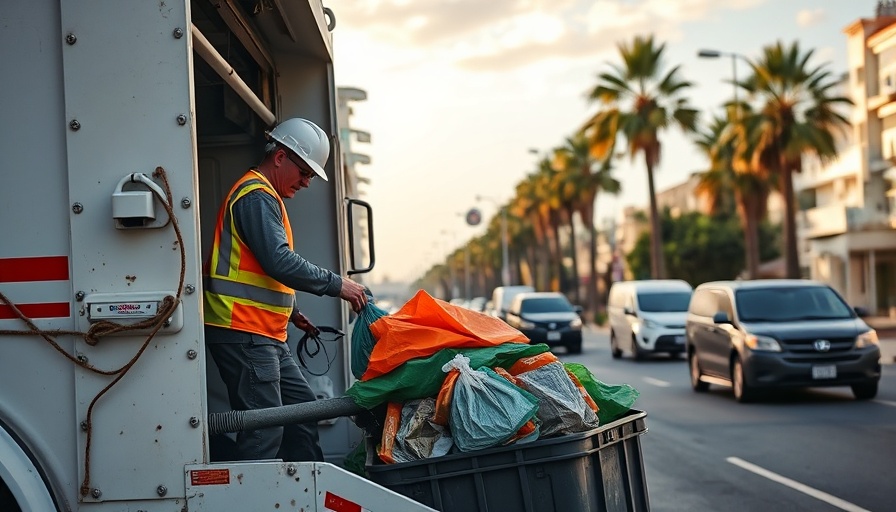
Understanding the Impending San Diego Trash Fee Hike
In San Diego, residents are bracing for a substantial increase in their trash pickup fees, with reports suggesting costs may rise to $53 per month—or $636 annually—for homeowners. This change is poised to impact approximately 235,000 families directly, while many apartment dwellers already rely on private haulers for their waste collection—an arrangement that will remain unchanged.
How Did We Get Here? A Brief History
The groundwork for this fee hike can be traced back to a 2022 voter decision. The San Diego City Council sought permission from the public to explore the implementation of a flat fee for trash collection services. Initially, the proposal estimated the fee to be around $23 to $29 per month. However, as the city council reconvenes to consider the fees next week, the projected charge has nearly doubled.
Comparing San Diego's Costs to Neighboring Cities
This proposed rate would place San Diego among the more expensive cities for trash collection within San Diego County, trailing only Long Beach and select cities in the Bay Area. Comparatively, nearby urban centers charge as follows:
- La Mesa: $27.53
- Carlsbad: $30.67
- Chula Vista: $36.80
- San Diego (proposed): $53
- Long Beach: $67.63
- San Francisco: $121.93
- San Jose: $160.35
These figures make it evident that San Diego residents could experience a serious financial strain, given that these rates might not even include additional costs for services like bulky item pickups and recycling, which residents may assume are included in their monthly rate.
What Services Will San Diegans Receive?
The city has promised enhancements and better services in exchange for the higher fees, including:
– Free container replacements
– Weekly recycling pickups
– Curbside service for bulky items
– RFID tracking in waste containers for efficient service management.
While these services aim to improve the waste management system, many residents might question whether the propositions justify the steep increase in fees.
Rethinking the Need for Special Fees
Historically, for over a century, San Diego had a law guaranteeing trash collection without a special fee. However, the city's 2022 vote repealed this, with the argument that the previous law was inequitable since many residents were already paying for private service. This paved the way for the city to levy fees on those who relied on city-funded waste collection to cover the expenses that come with it.
The Budget Deficit Factor
The city has also indicated it will use these new trash fees to help address an extensive budget deficit, raising concerns about whether residents are paying twice—once through their taxes for city services and again through the new fee structure.
Voices of Concern from the Community
Local residents are vocal regarding these impending changes, citing feelings of being financially burdened. Households already grapple with rising rents and living costs, making the prospect of paying $53 a month—even with new services—concerning. Many worry that the city is making superficial promises without a true plan to deliver on enhanced services, leaving residents to foot the bill for services society expects as standard.
Moving Forward: Community Engagement is Key
As the San Diego City Council prepares to discuss and vote on these proposed changes, the need for resident input cannot be overstated. This potential fee increase could put stress on already financially strained families, making it imperative that community voices are heard in discussions regarding the future of trash collection services.
San Diegans must stay informed and engaged as the council moves forward with potential decisions that could dramatically impact their wallets and community services. Understanding the implications of these fees fosters a more informed electorate and can lead to more transparent city governance.
As residents prepare for the upcoming public meeting where the Council will deliberate on these fees, engagement is essential. Attending city council meetings or contributing to local discussions will help to shape policy and keep services affordable and accessible.
 Add Row
Add Row  Add
Add 




 Add Row
Add Row  Add
Add 

Write A Comment